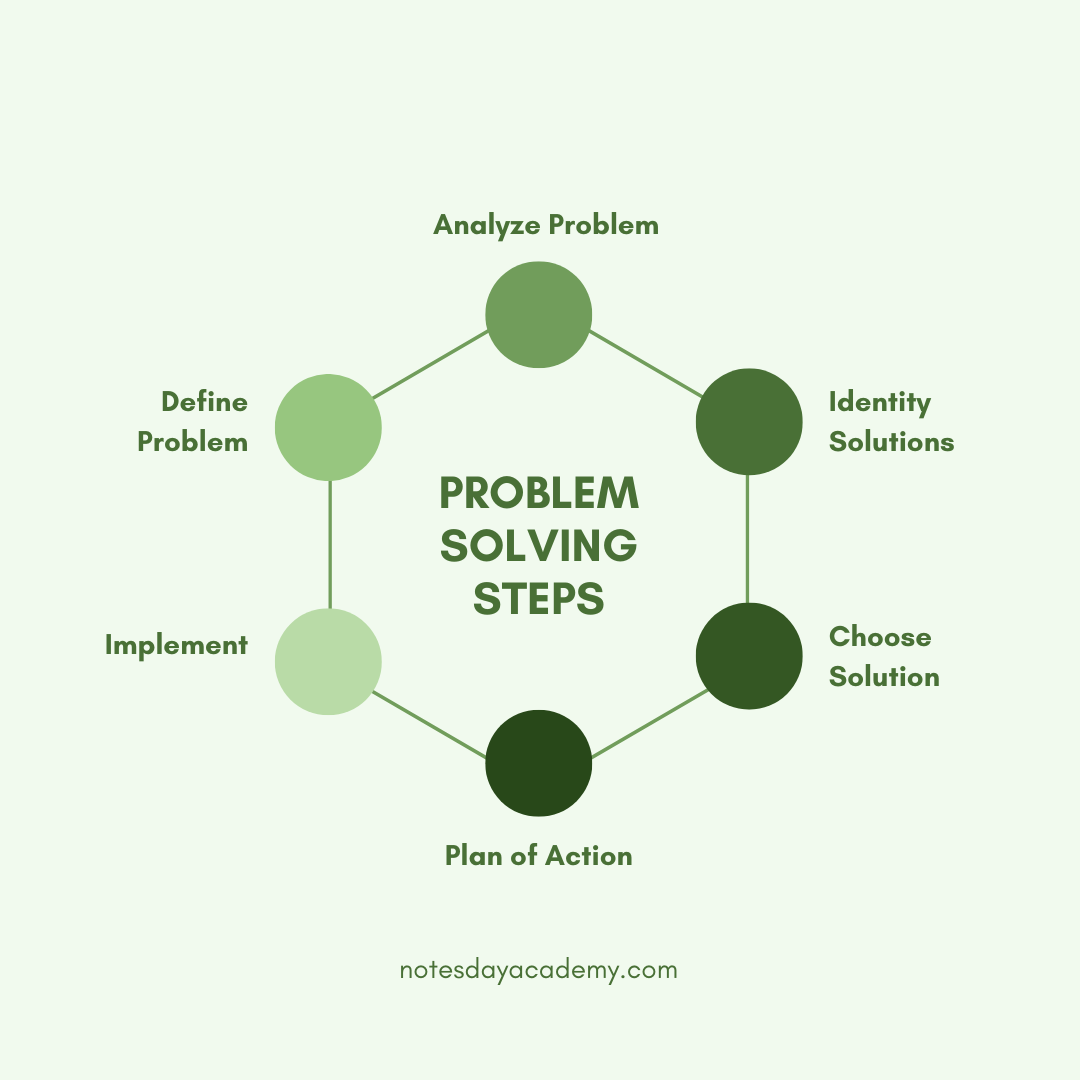Develop an Analytical Mindset as a Team Leader
As a team leader, it is essential to have an analytical mindset to make informed and effective decisions. An analytical mindset is an ability to gather, process, and interpret information to make data-driven decisions.
This skill is crucial for a team leader to have, as it allows them to understand the strengths and weaknesses of their team, identify opportunities for improvement, and make informed decisions that positively impact the team’s performance and the organisation’s bottom line.
Problem-solving
One of the key benefits of having an analytical mindset as a team leader is the ability to identify and solve problems. A leader with an analytical mindset can use data and information to identify the root cause of problems and develop effective solutions.
This helps to improve the performance of the team and increase efficiency.
Case Study: A great example of a leader with an analytical mindset is the former CEO of Dell, Michael Dell. He used data and analysis to identify opportunities for cost savings and efficiency improvements, which helped to make Dell one of the most successful computer manufacturers in the world.
Data-driven decision making

Another important benefit of having an analytical mindset as a team leader is the ability to make data-driven decisions. A leader with an analytical mindset can use data and information to identify trends and patterns and make decisions based on this information.
This helps increase the team’s effectiveness and improve the organisation’s overall performance.
Case Study: A great example of a leader who made data-driven decisions is the former CEO of Procter & Gamble, A.G. Lafley. He used data analysis to identify opportunities for product innovation and growth, which helped to make Procter & Gamble one of the world’s most successful consumer goods companies.
Continuous Improvement
Moreover, a team leader with an analytical mindset can also help to foster a culture of continuous improvement within the team.
Using data and analysis to identify areas for improvement, a leader can help increase the motivation and engagement of the team and can also help to increase the innovation and competitiveness of the team.
Case Study: A great example of a leader who fostered a culture of continuous improvement is the former CEO of Toyota, Akio Toyoda. He implemented a process called “Kaizen”, which encourages all employees to identify and solve problems within the company. This helped to increase employee engagement and motivation and also helped to improve the efficiency and quality of the company’s operations.
Better Resource Management
An analytical mindset also allows a team leader to use resources better. A leader with an analytical mindset can use data and information to identify areas where resources are being wasted and can make adjustments to improve efficiency and productivity.
Case Study: A great example of a leader who made better use of resources is the former CEO of Wal-Mart, Sam Walton. He used data and analysis to identify opportunities for cost savings and implemented innovative strategies such as just-in-time inventory management, which helped to make Wal-Mart one of the most successful retail companies in the world.
How to Develop an Analytical Mindset
Developing an analytical mindset is not something that happens overnight, but it is a skill that can be learned and honed over time.
Here are some tips for developing an analytical mindset as a team leader:
Learn to gather and organise data: Understand how to collect and organise data and use different tools and techniques to analyse it.
Practise critical thinking: Learn to objectively analyse data and information and identify patterns and trends.
Learn to use data visualisation tools: Familiarise yourself with tools such as Excel, Tableau, and Power BI to help you understand data and make it more accessible to others.
Seek feedback: Ask for feedback from your team members, colleagues, and superiors to understand how you are perceived and areas where you can improve.
Network with other leaders: Attend industry events, join professional organisations and connect with other leaders in your field with an analytical mindset.
Prioritise learning and development: Invest time and resources in learning and development opportunities to acquire new skills and knowledge.
Conclusion
Having an analytical mindset is a crucial skill for a team leader, as it enables them to understand the strengths and weaknesses of their team, identify opportunities for improvement, and make data-driven decisions. By developing an analytical mindset, a team leader can help improve the team’s performance, efficiency and better resource management and make better predictions about future trends and challenges.
At Notesday Academy, learning and development is an all-inclusive, continuous and engaging process. We have customised management and analysis courses to suit your individual or organisational growth needs.
Click here to speak with a representative from our team and surpass all limitations.
Follow Notesday Academy
Topic Categories
Get the latest updates
Sign up for our most recent posts
Take out some time to read. No spam, we will email you when a new post is published.





